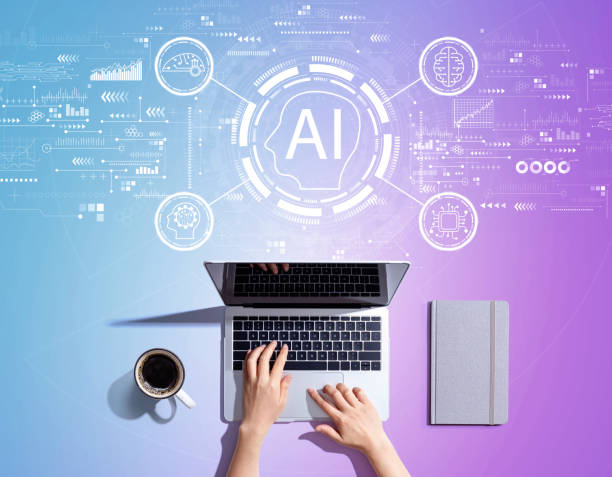An Introduction to the Future of AI Jobs and the Transformation of the Labor Market
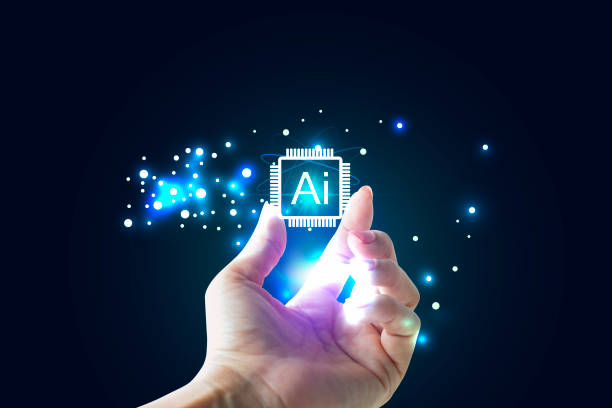
An Introduction to the Future of AI Jobs and the Transformation of the Labor Market
What is Artificial Intelligence (AI) ? Beyond a buzzword, AI is a multifaceted field involving the development of computer systems capable of performing tasks that typically require human intelligence.
These tasks include learning, problem-solving, pattern recognition, and decision-making.
The future of AI jobs is rapidly changing the global employment landscape.
With technological advancements and the penetration of AI into various industries, new jobs are being created, and some traditional jobs are gradually becoming obsolete.
Amidst this, an accurate understanding of AI job trends and preparedness for embracing changes is of particular importance.
The future of AI jobs is not limited to IT professionals but affects all industries and business areas.
For example, in healthcare, AI can help diagnose diseases more accurately and provide more effective treatments.
In finance, AI can help predict market trends and manage risk.
This article delves deeply into the future of AI jobs, its opportunities, and the challenges it presents, and offers strategies for adapting to these transformations.
Our goal is to provide a comprehensive and practical perspective so that individuals and organizations can better prepare for the future of AI jobs and benefit from its advantages.
In this regard, we will examine the role of AI in various industries, the new jobs created, and the skills needed for success in the age of artificial intelligence.
Are you tired of your company’s website failing to meet your expectations? Design a professional website with Rasaweb that showcases the true face of your business.
✅ Increase attraction of new customers and sales leads
✅ Increase your brand’s credibility and trust among the audience
⚡ Get free website design consultation!
The Impact of AI on Various Industries: Opportunities and Challenges
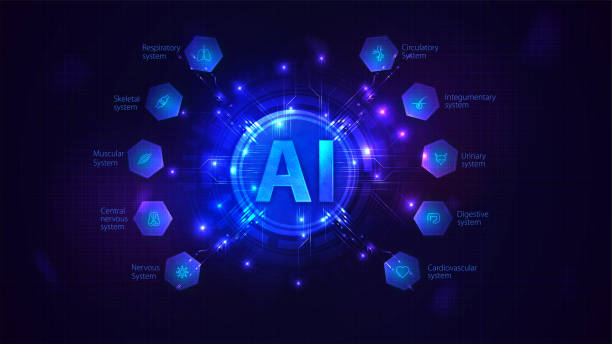
The Impact of AI on Various Industries: Opportunities and Challenges
Artificial intelligence (AI) has widely penetrated various industries, creating numerous opportunities and challenges.
The future of AI jobs is redefining industries through automation, advanced data analysis, and intelligent decision-making.
In healthcare, AI is used for diagnosing diseases, developing drugs, and personalizing treatments.
For example, AI algorithms can analyze medical images with greater accuracy and detect early signs of diseases.
In the financial industry, AI is used for fraud detection, risk management, and customer service.
Machine learning algorithms can identify complex patterns in financial data and prevent fraud.
In manufacturing, AI helps automate processes, improve product quality, and reduce costs.
AI-equipped robots can perform repetitive and dangerous tasks, increasing productivity.
However, these developments also present challenges.
One of the most significant challenges is the need for a skilled workforce in the field of AI.
A shortage of skilled professionals can hinder the successful implementation of AI projects.
Another challenge is the ethical concerns associated with the use of AI, such as maintaining privacy and preventing discrimination.
The future of AI jobs requires addressing these challenges and adopting responsible and sustainable approaches.
Investing in education and workforce development, establishing ethical and legal regulations, and raising public awareness can help mitigate these challenges.
The future of AI jobs offers unprecedented opportunities to improve the quality of life and increase productivity, but to fully benefit from these opportunities, the associated challenges must also be seriously addressed.
New Jobs Created by AI
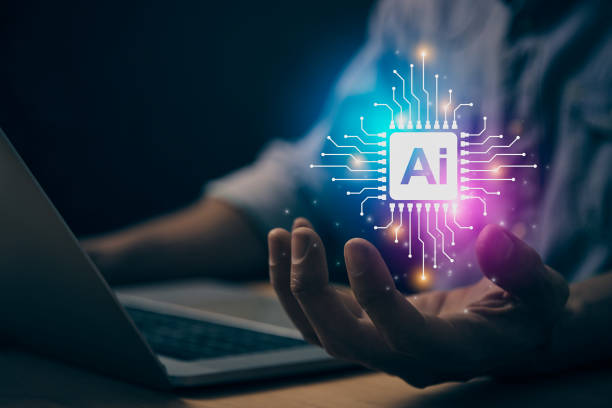
New Jobs Created by AI
Artificial intelligence not only transforms existing jobs but also creates new jobs that did not exist before.
The future of AI jobs has created diverse job opportunities in various fields.
One of the most important new jobs is AI engineering.
AI engineers are responsible for designing, developing, and implementing artificial intelligence systems.
They must have a deep understanding of machine learning algorithms, neural networks, and other AI techniques.
Another job is that of a data scientist.
Data scientists are responsible for collecting, analyzing, and interpreting data to extract useful patterns and insights.
They use statistical and machine learning techniques to solve complex problems.
Another rapidly growing job is that of an AI ethics specialist.
AI ethics specialists are responsible for ensuring that AI systems are used fairly and responsibly.
They must be aware of ethical issues related to AI, such as privacy, discrimination, and transparency.
Additionally, the future of AI jobs has created a need for professionals in other areas, such as AI training, AI consulting, and AI project management.
The future of AI jobs also creates opportunities for entrepreneurs.
Entrepreneurs can use AI to develop new products and services and create innovative businesses.
For example, companies that use AI to provide personalized services to customers or automate business processes can succeed in today’s competitive market.
However, to succeed in these new jobs, individuals must acquire new skills and adapt to the latest advances in AI.
Continuous education and lifelong learning are essential for maintaining competitiveness in the evolving job market.
| Job Title | Description | Skills Required |
|---|---|---|
| AI Engineer | Design and develop AI systems | Machine learning, neural networks, programming |
| Data Scientist | Analyze and interpret data to extract insights | Statistics, machine learning, data analysis |
| AI Ethics Specialist | Ensure fair and responsible use of AI | Ethics, law, social sciences |
Skills Needed for Success in the Age of AI
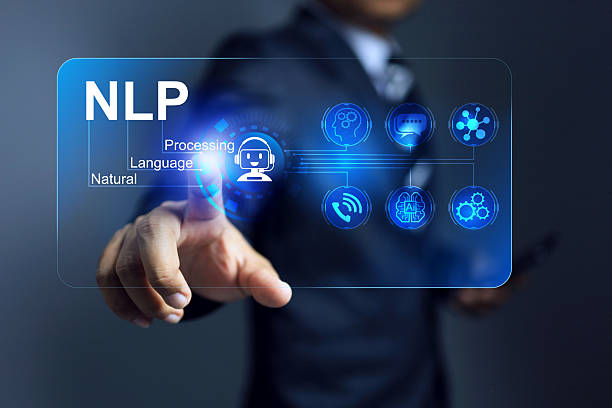
Skills Needed for Success in the Age of AI
In the age of AI, having the right skills is essential for success in the job market.
The future of AI jobs requires a combination of technical and soft skills.
Technical skills include a deep knowledge in areas such as machine learning, neural networks, programming, and data analysis.
Individuals should be able to design, implement, and evaluate AI algorithms.
They should also be able to collect, clean, and analyze data.
Soft skills include communication, problem-solving, critical thinking, and collaboration skills.
Individuals should be able to convey their ideas clearly and effectively to others.
They should be able to solve complex problems and make the right decisions.
They should also be able to collaborate effectively with others to achieve common goals.
Additionally, the future of AI jobs requires specific skills such as creativity, innovation, and adaptability.
Individuals should be able to generate new ideas and find innovative solutions to problems.
They should also be able to adapt quickly to changes in the work environment.
To acquire these skills, individuals can attend training courses, workshops, and conferences.
They can also use online resources such as books, articles, and videos.
Continuous learning and practical experience are essential for strengthening skills.
The future of AI jobs requires individuals who have the ability to learn and adapt to changes.
Investing in skills development and lifelong learning is essential for maintaining competitiveness in the evolving job market.
Does your current website reflect your brand’s credibility as it should? Or does it drive away potential customers?
Rasaweb, with years of experience in professional corporate website design, is your comprehensive solution.
✅ A modern, beautiful website tailored to your brand identity
✅ Significant increase in lead generation and new customers
⚡ Contact Rasaweb now for a free corporate website design consultation!
The Role of Education in Preparing the Workforce for the Future of AI Jobs
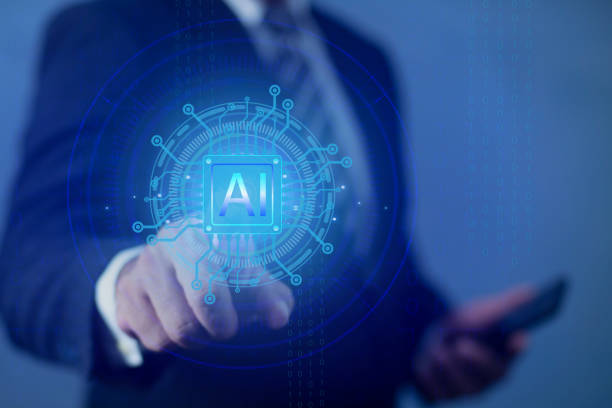
The Role of Education in Preparing the Workforce for the Future of AI Jobs
Education systems play a vital role in preparing the workforce for the future of AI jobs.
The future of AI jobs requires fundamental changes in teaching methods and curriculum content.
Schools and universities should familiarize students with the basic concepts of artificial intelligence, machine learning, and data science.
They should teach students the skills necessary to use AI tools and techniques.
In addition, education systems should also strengthen soft skills such as critical thinking, problem-solving, creativity, and collaboration.
These skills are essential for success in jobs that require human interaction and decision-making.
Education systems should also emphasize lifelong learning.
The future of AI jobs is rapidly changing, and individuals must be able to continuously update their skills.
Schools and universities can help individuals acquire new skills by offering online training courses, workshops, and conferences.
In addition, education systems should collaborate with industry to ensure that training aligns with the needs of the job market.
Companies can assist schools and universities by providing internships, research projects, and consulting.
The future of AI jobs requires investment in education.
Governments, companies, and individuals should work together to improve education systems to prepare the workforce for the future of AI jobs.
Ethical and Social Challenges of Using AI in the Workplace
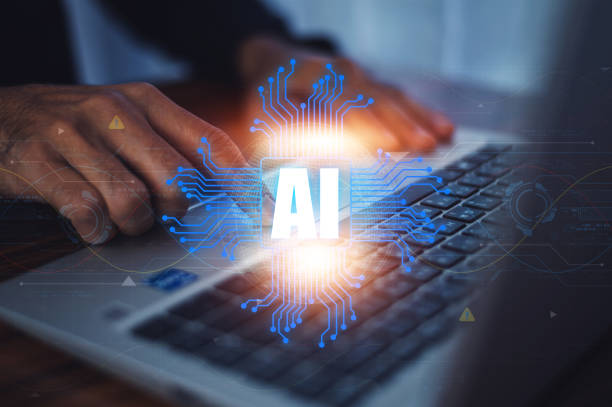
Ethical and Social Challenges of Using AI in the Workplace
The use of AI in the workplace presents numerous ethical and social challenges.
The future of AI jobs requires addressing these challenges and adopting responsible and sustainable approaches.
One of the most significant challenges is concerns about job loss.
With the automation of tasks by AI, many traditional jobs are at risk.
Governments and companies should create programs to support vulnerable workers and train them for new jobs.
Another challenge is concerns about discrimination.
AI algorithms can be trained based on historical data and, as a result, reproduce existing societal biases.
To prevent this, algorithms should be carefully reviewed, and training data should be diverse and balanced.
Another challenge is maintaining privacy.
AI systems can collect a lot of data about workers, such as their performance, behavior, and health.
This data can be used to monitor workers and make employment decisions.
To protect workers’ privacy, regulations should be developed for the collection, use, and storage of data.
Additionally, the future of AI jobs requires transparency and accountability.
Workers should know how AI systems are used in the workplace and how decisions are made.
They should have the opportunity to provide feedback on decisions that affect them.
The future of AI jobs requires dialogue and collaboration between governments, companies, workers, and civil society.
By working together, we can benefit from the advantages of AI and reduce its ethical and social challenges.
The Future of AI Jobs and Its Impact on the Global Economy

The Future of AI Jobs and Its Impact on the Global Economy
The future of AI (Artificial Intelligence) jobs will have profound impacts on the global economy.
AI is predicted to increase productivity, economic growth, and the creation of new jobs.
However, these developments could also lead to job losses, increased inequality, and social challenges.
One of the most significant impacts of the future of AI jobs is increased productivity.
AI can help automate tasks, improve efficiency, and reduce costs.
This can lead to increased corporate profitability and lower prices for goods and services.
AI can also contribute to economic growth.
By increasing productivity and reducing costs, companies can invest more in research and development and offer new products and services.
This can lead to the creation of new jobs and increased income.
However, the future of AI jobs can also lead to job losses.
With the automation of tasks by AI, many traditional jobs are at risk.
This can lead to increased unemployment and inequality.
To mitigate these negative effects, governments should create programs to support vulnerable workers and train them for new jobs.
The future of AI jobs can also lead to increased inequality.
New jobs created by AI typically require high skills, and people who do not have these skills may be excluded from these opportunities.
This can lead to a widening gap between the rich and the poor.
To reduce this inequality, governments should create educational and support programs to help people acquire the skills needed for new jobs.
Given these widespread impacts, governments and international organizations should adopt appropriate policies to manage the future of AI jobs and benefit from its advantages.
Case Studies of Companies That Have Successfully Used AI
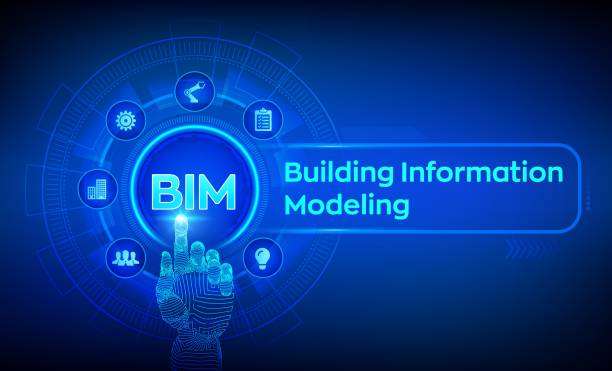
Case Studies of Companies That Have Successfully Used AI
Studying case studies of companies that have successfully used AI can provide valuable insights into the future of AI jobs and how to benefit from it.
One such company is Amazon.
Amazon uses AI to improve customer service, optimize its supply chain, and develop new products.
For example, Amazon uses an AI-based chatbot called Alexa to answer customer questions and provide support services.
This chatbot can automatically answer many frequently asked questions and refer customers to human representatives when needed.
Another company is Netflix.
Netflix uses AI to suggest movies and TV shows to users that they are likely to be interested in.
This AI-based recommendation system provides suggestions based on users’ viewing history, ratings and reviews, as well as information about movies and TV shows.
Another company that has used AI effectively is Google.
Google uses AI to improve its search engine, develop machine translation systems, and create self-driving cars.
For example, Google uses an AI-based machine translation system called Google Translate, which can translate text and speech between more than 100 different languages.
This machine translation system uses deep learning techniques to improve the accuracy and fluency of translations.
These case studies show that the future of AI jobs provides many opportunities for companies to increase their productivity, improve customer service, and develop new products.
However, successful implementation of AI requires careful planning, investment in technology, and workforce training.
| Company | Area of Activity | AI Application | Results |
|---|---|---|---|
| Amazon | Online Retail | Alexa Chatbot, Supply Chain Optimization | Improved Customer Service, Reduced Costs |
| Netflix | Media and Entertainment | Movie and TV Show Recommendation System | Increased User Engagement, Customer Retention |
| Information Technology | Search Engine, Machine Translation, Self-Driving Cars | Improved Search Accuracy, Facilitated Communication, Innovation |
Did you know that 94% of first impressions of a company relate to its website design?
Rasaweb helps you create the best first impression by providing professional corporate website design services.
✅ Create a professional and trustworthy image of your brand
✅ Easier attraction of potential customers and improved online positioning
⚡ Get a free corporate website design consultation
Predicting Key Trends in the Future of AI Jobs

Predicting Key Trends in the Future of AI Jobs
To better understand the future of AI jobs, it is essential to predict key trends in this area.
One of these trends is increased automation.
With the advancement of AI, it is expected that many repetitive and routine tasks in various industries will be automated.
This can lead to reduced costs and increased productivity, but it can also lead to job losses in some areas.
Another trend is the increased use of AI in decision-making.
AI can help managers and decision-makers make better decisions based on data.
This can lead to improved company performance and increased competitiveness.
It is also expected that the future of AI jobs will see increased use of AI in the development of new products and services.
AI can help companies offer more innovative products and services that better meet customer needs.
In addition, the future of AI jobs is predicted to see an increased demand for AI specialists.
With the increasing use of AI in various industries, the need for people who have the knowledge and skills to design, develop, and implement AI systems will increase.
Finally, the future of AI jobs requires attention to ethical and social issues.
With the increasing use of AI, it must be ensured that this technology is used responsibly and fairly and that the rights and privacy of individuals are protected.
To succeed in the future of AI jobs, individuals and organizations must pay attention to these key trends and prepare themselves for future changes.
Strategies for Adapting to the Transformations of the Future of AI Jobs
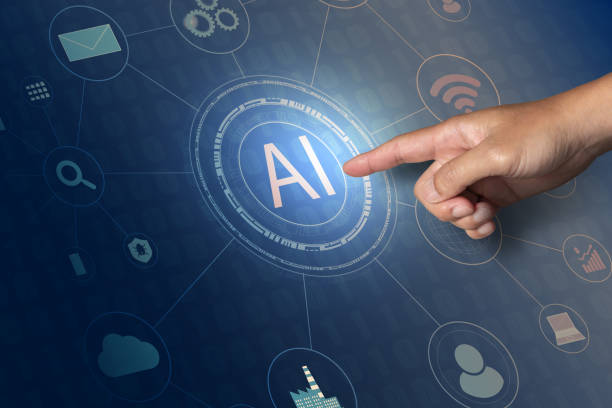
Strategies for Adapting to the Transformations of the Future of AI Jobs
To adapt to the transformations of the future of AI jobs, individuals and organizations must adopt appropriate strategies.
One of the most important strategies is continuous learning and skills development.
Individuals must continuously update their knowledge and skills and acquire new skills in areas such as artificial intelligence, machine learning, and data science.
Organizations must also provide training and development programs for their employees to prepare them for the future of AI jobs.
Another strategy is flexibility and adaptability.
Individuals and organizations must be prepared to adapt to changes in the work environment and accept new roles and responsibilities.
Organizations must design their structures and processes in such a way that they can quickly adapt to changes in the market and technology.
Also, the future of AI jobs requires entrepreneurship and innovation.
People need to come up with new ideas and create innovative businesses.
Organizations should provide an environment that encourages entrepreneurship and innovation and supports new ideas.
Additionally, the future of AI jobs requires collaboration and networking.
Individuals must collaborate with others and expand their professional networks.
Organizations should cooperate with other organizations, universities, and research centers to benefit from the latest advances in artificial intelligence.
Finally, the future of AI jobs requires attention to ethical and social issues.
Individuals and organizations must use AI responsibly and fairly and protect the rights and privacy of individuals.
By adopting these strategies, individuals and organizations can adapt to the transformations of the future of AI jobs and benefit from its opportunities.
Frequently Asked Questions
| Question | Answer |
|---|---|
| What impact will AI have on the future job market? | AI will automate repetitive jobs, but at the same time, it will create new and more complex jobs in areas such as the development, maintenance, and training of AI systems. |
| Which jobs are most at risk of being replaced by AI? | Jobs that involve repetitive, rule-based tasks with low requirements for creativity or emotional intelligence, such as some manufacturing jobs, data entry, and simple customer service, are most at risk. |
| What skills are essential for success in the future job market with the presence of AI? | Skills such as critical thinking, complex problem-solving, creativity, emotional intelligence, data literacy, the ability to work with AI, and lifelong learning are of high importance. |
| Will AI cause widespread unemployment? | Some jobs will disappear, but history has shown that new technologies, instead of causing widespread unemployment, reshape the job market and create new jobs. The need for adaptation and retraining is important. |
| What new job opportunities will arise with the emergence of AI? | Jobs such as Machine Learning Engineer, Data Scientist, AI Ethicist, Human-AI Interaction Designer, and Digital Transformation Consultant are among the new opportunities. |
| What is the role of education in preparing for the future job market with AI? | Education should focus on developing soft skills, computational thinking, digital literacy, and the ability to learn continuously to prepare people for future changes. |
| How can I prepare myself for the changes in the job market caused by AI? | You can prepare yourself by learning new skills related to AI and data, strengthening soft skills, developing critical thinking and creativity, and getting used to lifelong learning. |
| Will AI ethics become an important job field? | Yes, given the growing concerns about biases, privacy, and automated AI decision-making, the role of AI ethics professionals will be critical to ensuring its responsible development. |
| What is the importance of human-AI collaboration in the future job market? | Instead of competition, human-AI collaboration shapes the future of the job market. AI can be a tool to increase productivity and allow humans to focus on more complex and creative tasks. |
| Which industries will be most affected by AI? | Almost all industries will be affected, but areas such as healthcare, finance, transportation, manufacturing, education, and customer service are pioneers in adoption and transformation by AI. |
And other services of Rasaweb Advertising Agency in the field of advertising
Smart Marketplace: A creative platform to improve customer acquisition with intelligent data analysis.
Intelligent Content Strategy: An exclusive service to grow the click-through rate based on user experience customization.
Intelligent Link Building: A new service to increase campaign management through marketing automation.
Intelligent SEO: Designed for businesses looking to increase click-through rates through marketing automation.
Intelligent Digital Advertising: A combination of creativity and technology to attract customers through marketing automation.
And more than a hundred other services in the field of internet advertising, advertising consulting, and organizational solutions
Internet Advertising | Advertising Strategy | Advertorials
Resources
The Application of Artificial Intelligence and the Labor Market; What is Its Fate?
,The Occupational Trends of Artificial Intelligence in Iran Have Been Identified
,The Trend of Artificial Intelligence in Organizations; How Can We Replace Human Intelligence?
,Know the Highlights of Artificial Intelligence in Iran
? To reach the peaks of success in the digital world, Rasaweb Digital Marketing Agency offers services such as modern user interface website design and professional optimization, stands beside you.
📍 Tehran, Mirdamad Street, next to the Central Bank, South Kazerun Alley, Ramin Alley, No. 6

